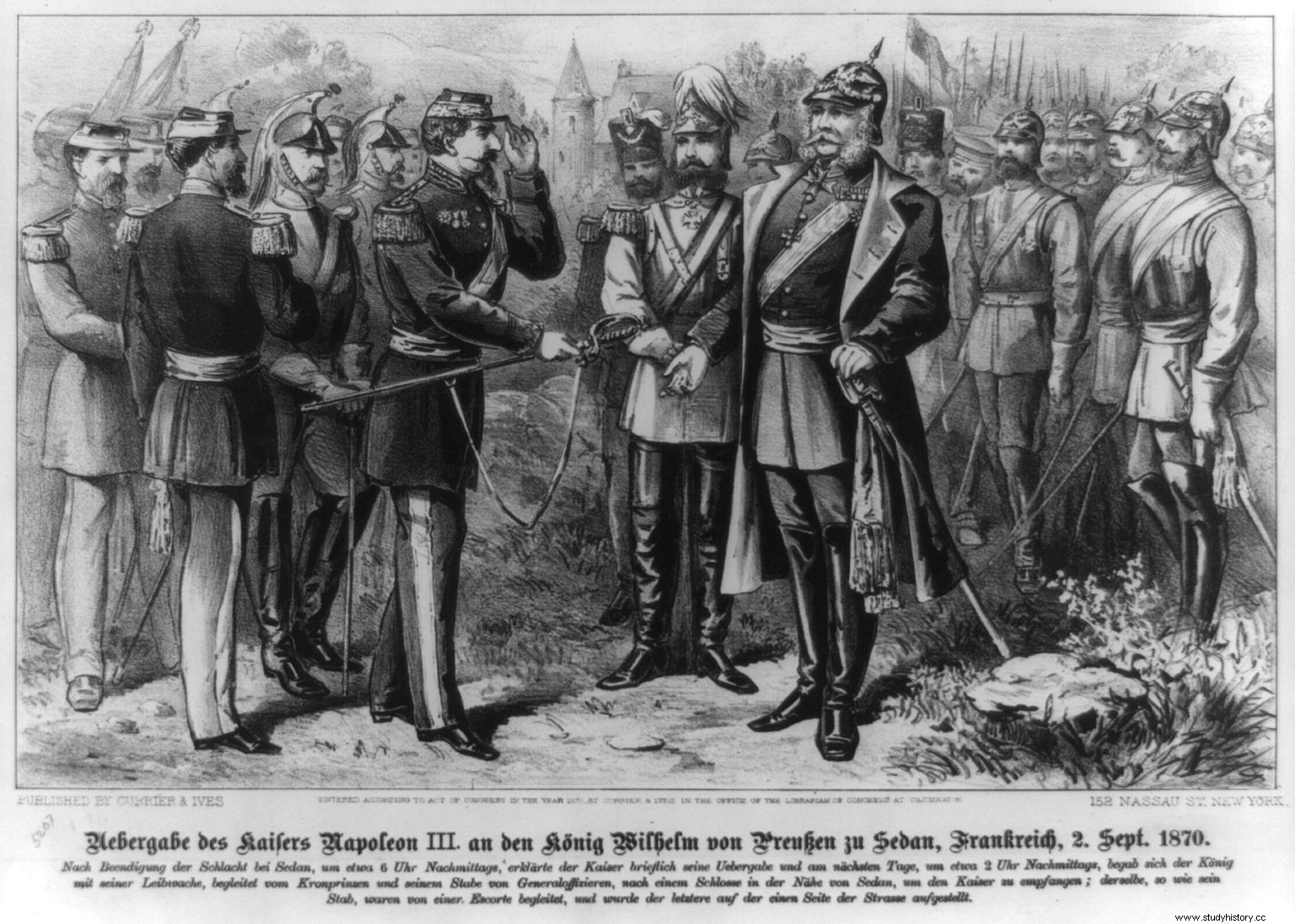Napoleon III, thanks to the coup carried out on December 2, 1851, imposed himself and established the Second Empire. On the other side of the Rhine, Chancellor Bismarck wants the reunification of Prussia, so he provokes the Emperor of the French with the dispatch from Ems. The latter fell into the trap and declared war on him a little too hastily, on July 19, 1870, thinking he was supported by his European neighbors. But it is nothing. France finds itself alone, hardly prepared:it has only 265,000 soldiers ready to fight against the Prussians, the coalition which has 600,000 soldiers and a remarkable organization.
September 2, 1870

Characters
François Achille Bazaine
Otto von Bismarck
Auguste-Alexandre Ducrot
William II of Prussia
Patrice de Mac-Mahon
Helmuth von Moltke
Napoleon III
Emmanuel Felix de Wimpffen
Procedure
The fighting quickly turned to the advantage of the Prussians, led by Moltke (Prussian Marshal) and Bismarck, under the orders of Emperor William II of Prussia:the French were defeated on August 4 at Wissembourg and two days later at Froeschwiller-Woerth the French cuirassiers are massacred. Thus, less than a month after the start of the offensive, France has only half its strength.
The Emperor Napoleon III, ill, relinquished command in favor of Marshal Bazaine. After the defeat of the Battle of Saint-Privat or Battle of Gravelotte (August 17-18, 1870), the latter found himself trapped by enemy troops in Metz. Marshal Mac Mahon left Chalons to come to his rescue, but the lack of organization of the General Staff led to the defeat at Beaumont on August 30, 1870 and the army retreated to the stronghold of Sedan. The 1 st September is a final battle. A wounded Mac Mahon gives command to General Ducrot, but the French General Wimpffen claims him because he is the highest ranking officer. Here again, disorganization is in order, which does not help the French camp… The defeat is stinging. Napoleon III, although ill, decides to go out on the battlefield, but that does not change the course of things. The next day, September 2, 1870, hoisting the white banner over the impregnable fortress, the Emperor went to meet the German General Staff and Chancellor Bismarck. The capitulation is signed at the Château de Bellevue on the heights of Sedan. The people learning of the defeat see the end of imperial prestige and fall Napoleon the same day. He remains a prisoner in the castle of Wilhelmshöhe in Hesse, then goes into exile in England to join his wife. Meanwhile, France proclaims the III th République, September 4, 1870. Paris is besieged and will remain so until the signing of the armistice in January 1871. Napoleon will die in 1873.
Consequences
The capitulation of Sedan by Napoleon III against the Prussians, on September 2, 1870, set fire to the powder kegs. The popular revolt of the Commune in 1871, born of this defeat, revokes the Empire. France returns to instability and loses Alsace-Lorraine. The Third Republic (1870-1940) is born and will last, however, for almost a century.
